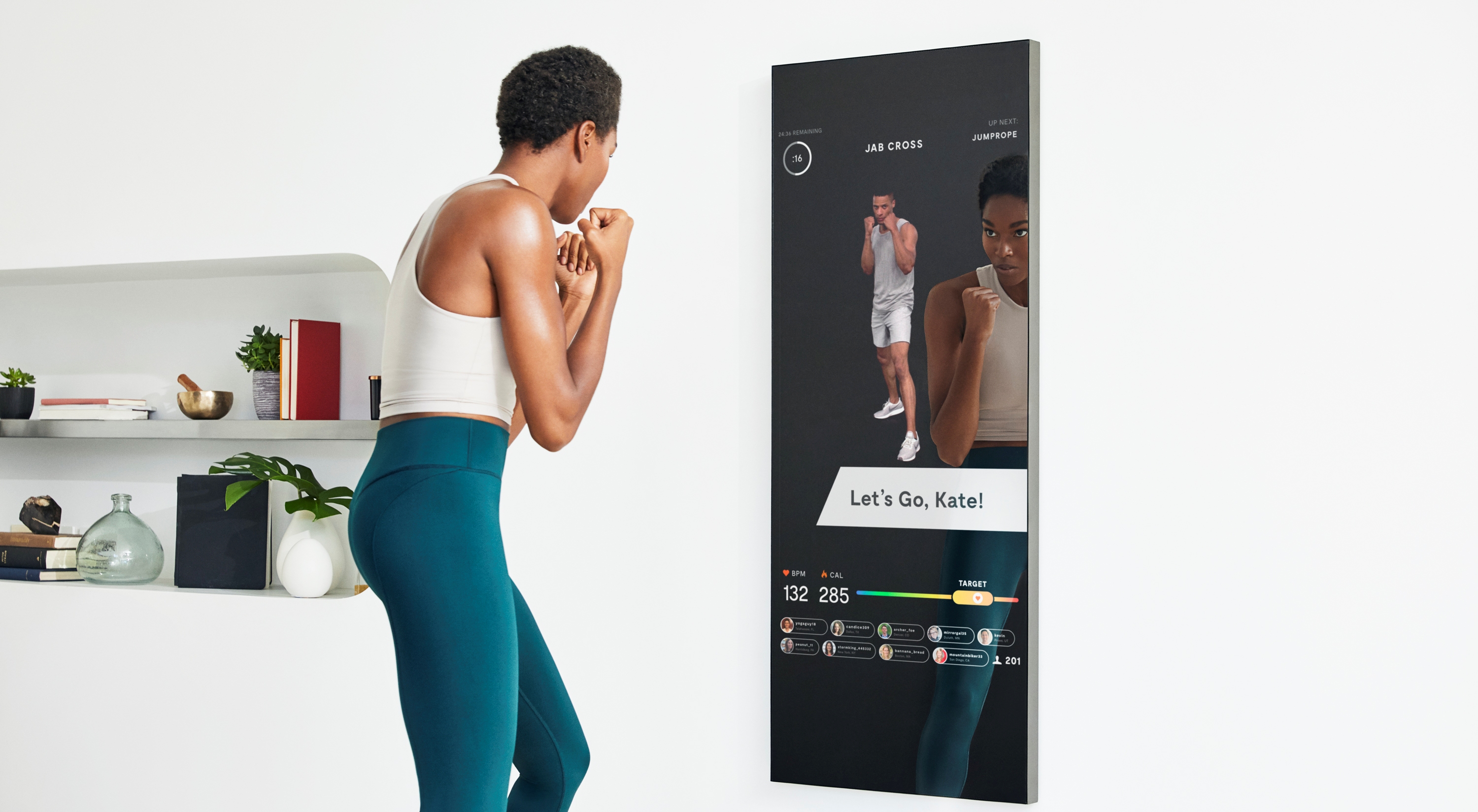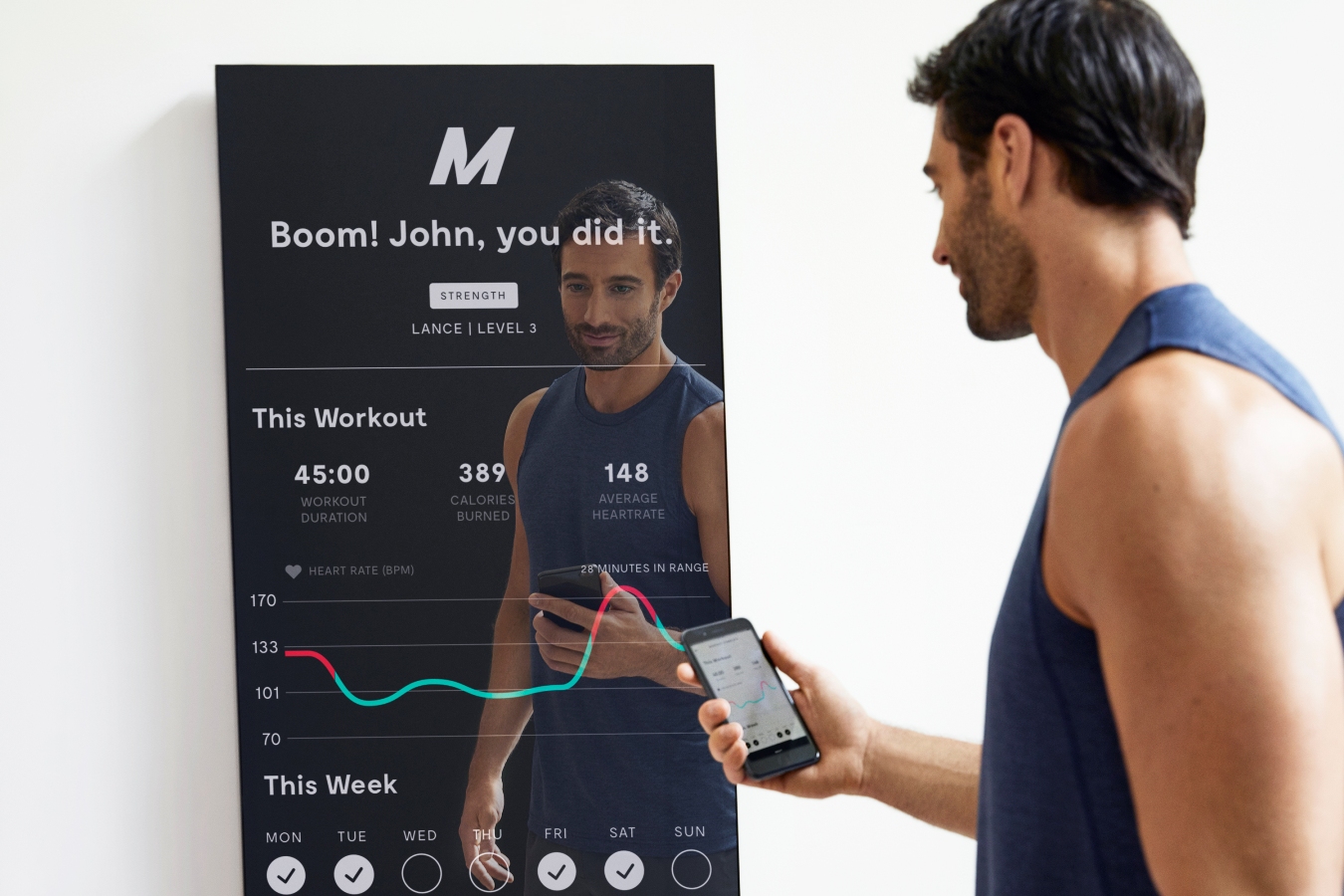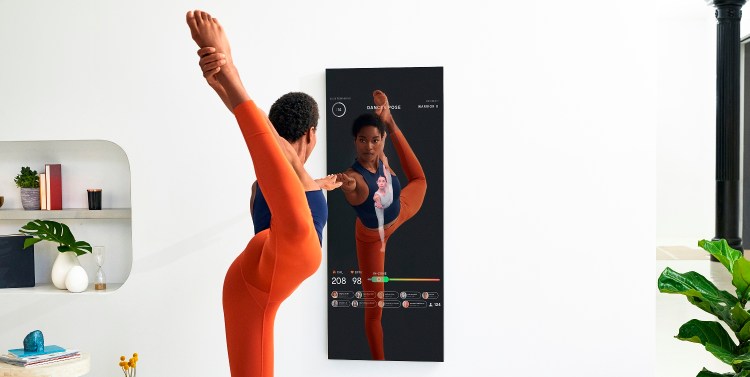There are connected fridges, ovens, beds, and bikes … and now there are connected mirrors too.
New York-based fitness technology startup Mirror today launched its product out of stealth and announced a $25 million round of funding from Spark Capital. This comes six months after the startup first teased its product alongside an inaugural $13 million of funding.
In a nutshell, Mirror is setting out to deliver in-home workouts through giant mirrors that connect to live and on-demand fitness classes. It resembles a giant smartphone on a stand, and constitutes a LCD panel, stereo speakers, camera, microphone, and a one-way mirror.

Above: Mirror on stand
Users can watch themselves on-screen during their workout at the same time as the virtual fitness instructor.
June 5th: The AI Audit in NYC
Join us next week in NYC to engage with top executive leaders, delving into strategies for auditing AI models to ensure fairness, optimal performance, and ethical compliance across diverse organizations. Secure your attendance for this exclusive invite-only event.

Above: Mirror: Watch yourself and the instructor
At launch, available classes include yoga, Pilates, cardio, strength, boxing, stretch, and barre, with tailored levels available from beginner through to expert. The real-time instruction, which may include personal shout-outs from the instructors, are also optimized in real time depending on the user’s preferences and biometric data garnered from heart-rate monitors or smart watches. More than 50 new workouts will be added each week, according to a statement issued by the company, created for Mirror in a New York-based fitness studio.
It’s worth noting here that the giant mirror functions exactly like a real mirror when it’s turned off, and it doesn’t sport any kind of touchscreen functionality. An accompanying mobile app — available for iOS devices only at launch — serves as the control center for all the on-screen action, while also giving the user access to their fitness data.

Above: Mirror: Fitness data

Above: Mirror app: Control center
Keeping fit is big business. The health club industry generates around $83 billion in revenue around the world each year, according to numbers from the International Health, Racquet & Sportsclub Association (IHRSA), with more than 160 million members visiting 200,000 gyms and fitness centers globally. But visiting a physical building to work out isn’t for everyone, plus it can be time-consuming when you factor in travel — this is why we’ve seen a number of home-focused fitness startups raise big in recent times.
Last month, Peloton raised $550 million to expand its domestic connected fitness machines and virtual classes, while a few months back Audio-based fitness app Aaptiv raised $22 million.
“Studio classes are great for high-quality, hands-on training, but are often draining on time and budget,” noted Mirror CEO and founder Brynn Putnam. “We’re creating a personalized experience with the best trainers and classes around the world, so anyone can enjoy the benefits of a workout, whenever and wherever they want.”
With another $25 million in the bank, Mirror is now ready to ramp up its operations as it finally brings its product to market. The damage? $1,495 up front for the Mirror device, plus $39 each month to access all the classes. It’s not cheap, sure, but people are willing to spend big to keep fit at their own convenience.

